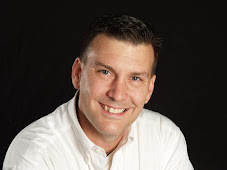How can we do things better?
How can we make a difference?
I believe that if we would embrace a paradigm shift from regulatory to relational religion we would see a dramatic increase in ministry productivity. How do we make this shift? I see three things to be done:
- Move past the past.
- Marker the moments of today.
- Make a vision for the future.
Let's begin with the first item: move past the past. Calvin Whitman* in his sermons based on Exodus says that "the past is to be a guidepost...not a hitching post." I concur. So often we fondly look back at the past and the nostalgia is so thick we cannot find our way back to the present. We hitch our lives, our ministries, our churches to the ways of the past. The past is something we are to remember without replay. We are to recall the past, but live in the present. Our present is vastly different in the information age as we experience a doubling of intelligence every few years with increasing speed.
In order to move past the past and begin our transition from regulatory to relational religion we must understand the principle of reciprocity. This principle, as I define it here, means that we extend the same amount and kind of grace extended to us. Relational religion expresses this type of grace. Regulatory religion tends to hand out guilt and shame by holding on to your past and bringing it up every time there is an opportunity. Regulatory religion operates out of power by setting up levels of sin and disciplining through calling out, shame, shunning, etc. Other ways to express discipline include glares and stares, whispers in hallways, and silent treatment. Who wouldn't want to go to that church? This is the exact point I am making. Relational religion does not create levels of sin but levels out sin since all sin is equal in God's eyes. Relational religion does not feel a need to discipline to make ourselves feel better but to disciple to make others fully devoted followers of Christ. Relational religion loves people as they have been loved rather than focusing on the hatred of sin. Operating out of a negative position creates negative results. Regulatory religion is not a healthy approach. Further, regulatory religion exits when things get a little tough.
When the addict relapses do we exit or encourage?
When the marriage is dissolving do we exit because of their lack of faith or do we encourage them through love and devotion?
These type of questions go straight to the heart of our religion. We must not only move past our past, but also move past other people's past. Love keeps no record of wrongs. Let's move past the past.
* Calvin Whitman is the pastor of Applewood Baptist Church in Colorado.



